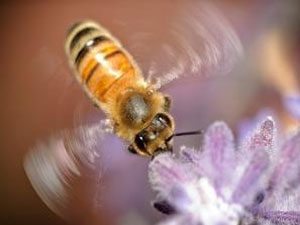《Nature》目录要览:2011-01-20出版
时间:2011-01-20 阅读: 我要评论:
HIV-1衣壳的原子模型(The HIV-1 capsid modelled at the atomic level)
Atomic-level modelling of the HIV capsid
http://www.natureasia.com/ch/nature/updates/index.php?i=81549&issue=7330
两种全麻药物的结构被确定(Structure of the general anaesthetic site)
X-ray structures of general anaesthetics bound to a pentameric ligand- gated ion channel
http://www.natureasia.com/ch/nature/updates/index.php?i=81552&issue=7330
----------------------
NEWS & VIEWS
----------------------
FORUM
Financial systems: Ecology and economics pp302 - 303
A growing body of literature deals with the application of theories developed in other disciplines to financial institutions, to which a paper in this issue now adds. As outlined here, however, views differ as to its relevance. See Perspectivep.351
Neil Johnson and Thomas Lux
doi:10.1038/469302a
http://www.nature.com/nature/journal/v469/n7330/full/469302a.html
Neuroscience: Seeing into the future pp303 - 304
The resting brain recapitulates activity patterns that occurred during a recent experience, possibly to aid long-term memory formation. Surprisingly, corresponding brain activity also occurs before an event happens. See Letterp.397
Edvard I. Moser and May-Britt Moser
doi:10.1038/469303a
http://www.nature.com/nature/journal/v469/n7330/full/469303a.html
Astrophysics: How galaxies got their black holes pp305 - 306
The massive compact objects in the centres of galaxies developed in at least two ways. One seems to be a natural result of galaxy formation in the Big Bang theory of the expanding Universe — the other is enigmatic. See Lettersp.374 & p.377
P. James E. Peebles
doi:10.1038/469305a
http://www.nature.com/nature/journal/v469/n7330/full/469305a.html
AIDS: Drugs that prevent HIV infection pp306 - 307
Two human trials investigate the efficacy of a type of antiretroviral drug — usually used to treat HIV-infected individuals — in preventing HIV infection. The results are heartening.
Mark A. Wainberg
doi:10.1038/469306a
http://www.nature.com/nature/journal/v469/n7330/full/469306a.html
Imaging: Spot the hotspot pp307 - 308
Plasmonic hotspots — nanometre-sized crevices that permit the detection of single molecules — are too small to be imaged with conventional microscopes. They can now be probed using super- resolution fluorescence microscopy. See Letterp.385
Martin Moskovits
doi:10.1038/469307a
http://www.nature.com/nature/journal/v469/n7330/full/469307a.html
Evolutionary biology: Farming writ small pp308 - 309
Social slime moulds graze on bacteria, but save some for transmission in their spores. Strains practising this primitive form of farming coexist with non-farmer strains in an intriguing cost–benefit equilibrium. See Letterp.393
Jacobus J. Boomsma
doi:10.1038/469308a
http://www.nature.com/nature/journal/v469/n7330/full/469308a.html
Immunology: Peptide gets in shape for self-defence pp309 - 310
The transformation of tadpole to frog and of caterpillar to butterfly are two of the more obvious examples of metamorphosis. But molecular shape-shifting may occur in each of us as part of our innate antibacterial defence system. See Letterp.419
Robert I. Lehrer
doi:10.1038/469309a
| 《Nature》目录要览 — 2011-04-28出版 |
| 《Nature》目录要览:2011-01-20出版 |
| 《Nature》目录要览:2010-12-23出版 |
| 《Nature》目录要览:2010-12-16出版 |
| 《Nature》目录要览:2010-12-09出版 |
| 《Nature》目录要览:2010-12-02出版 |
特别声明:本文转载仅仅是出于传播信息的需要,版权归原作者所有,并不意味着代表本网站观点或证实其内容的真实性; 如其他媒体、网站或个人从本网站转载使用,须保留本网站注明的“来源”,并自负版权等法律责任; 作者如果不希望被转载或者联系转载稿费等事宜,请与我们接洽:service#environmentor.cn(请将#改为@)。
来源:Nature 作者:Environmentor (环境人 Environmentor.Cn)





